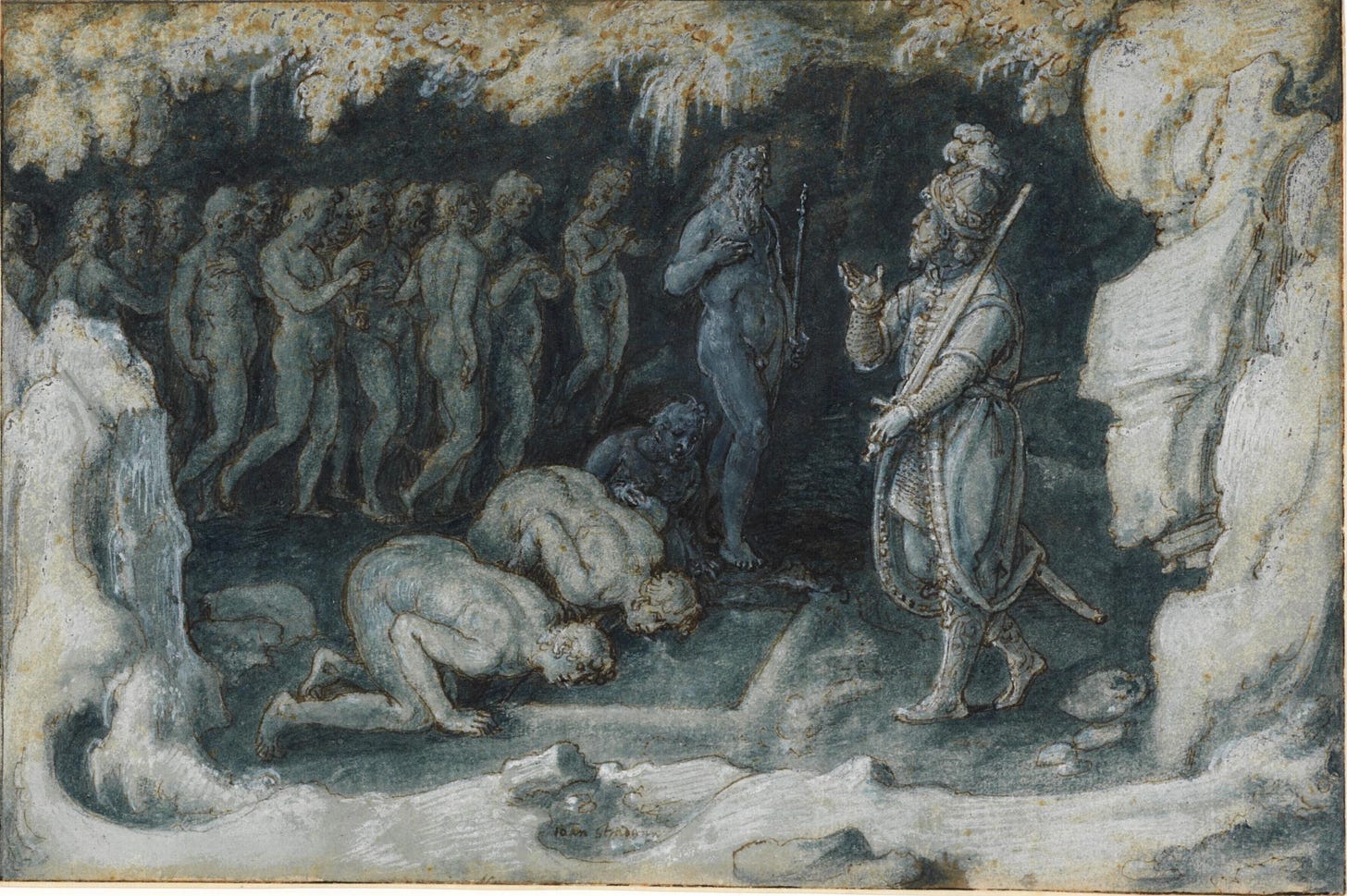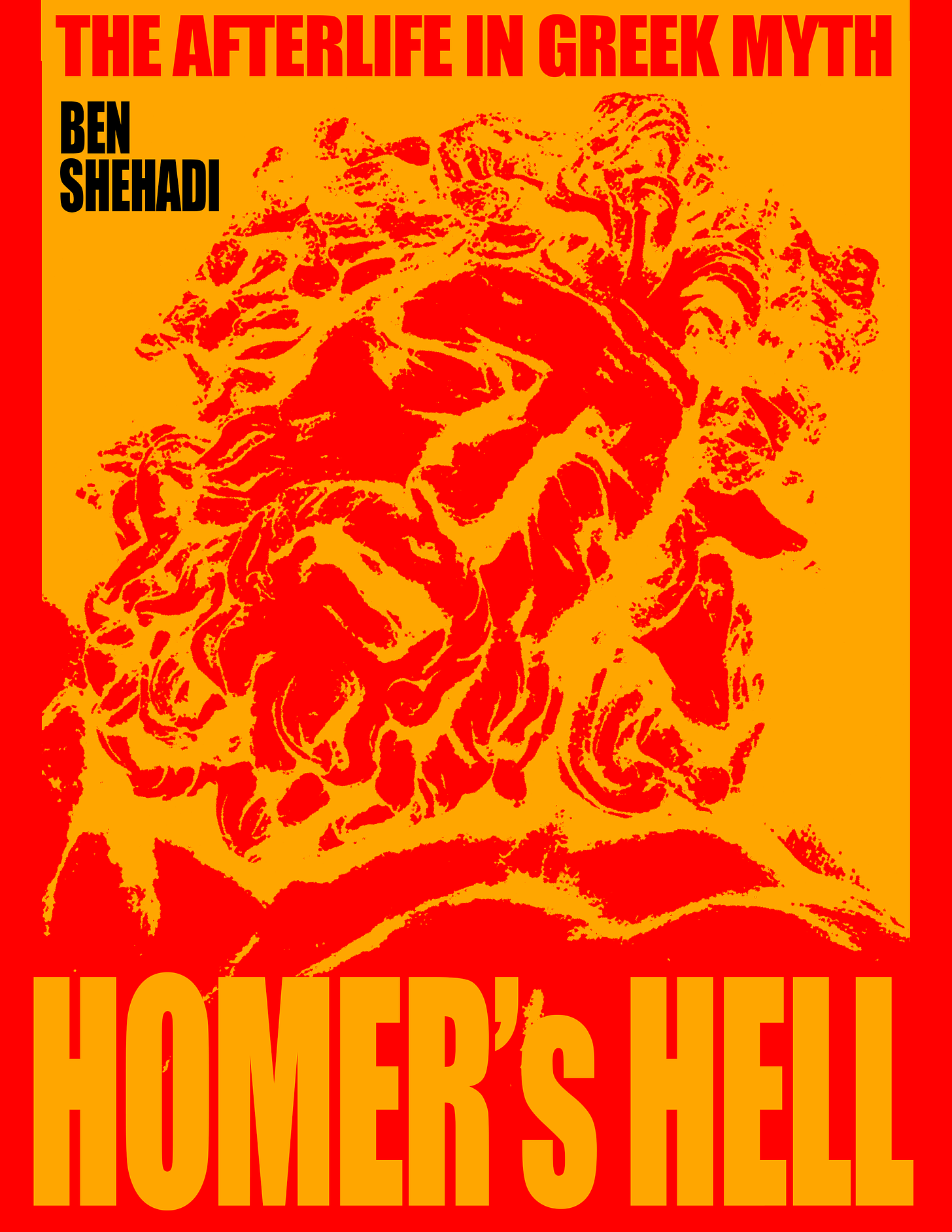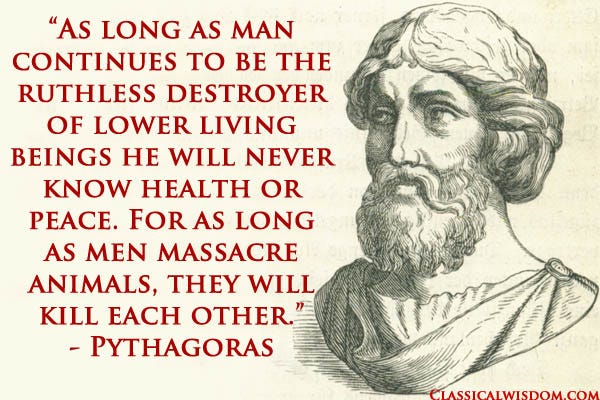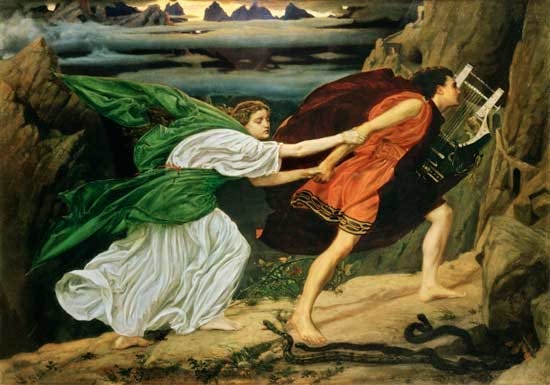What Happens When We Die? And Does That Impact How We Live?
Homer’s Hell: The Afterlife in Greek Mythology
Dear Classical Wisdom Reader,
You don’t have to give context or explanation for the importance of this question. Its universality in both time and place are without doubt; what happens after life is either a central concern or reassurance for every single culture that has ever existed. In a strange way it is death that unites us.
It is also one of the greatest unknowns... and as such, the differing views are remarkable, the practices and rituals varied, and the spectrum of conviction incredible.
But what exactly is the afterlife? What happens when we die? Will we ever know? And perhaps more importantly, how does it impact how we live?
As always, write to anya@classicalwisdom.com or reply with your thoughts and beliefs...
But first, to get you started, I have a guest article and an excellent introduction to the ancients’ own view of the afterlife. Read on to see what Homer’s Hell was like... as well as their perspectives on reincarnation and heaven, below.
All the best,
Anya Leonard
Founder and Director
Classical Wisdom
Homer’s Hell: The Afterlife in Greek Mythology
By Ben Shehadi
What happens when we die? People throughout the world have pondered this natural question since time immemorial and the ancient Greeks were no exception. Through their myth-telling, the Greeks sought to explain and give meaning to our human existence—just like Christianity, Islam, or any other religion does today.
The Greek Underworld
The standard Greek view of the afterlife, as told in the Homeric stories, was very grim. The Underworld, or Tartarus, was a place of shadows and dim existence, much less desirable than earthly life. A dead person in Tartarus was believed to be nothing more than an “image” (eidolon) of their former earthly selves. Opposite of the Christian and Islamic worldviews, the afterlife in early Greek mythology was much less real and less important than the living.

The soul, or psyche, was the “breath” of life which leaves the body at the moment of death. It was understood as the vital difference between a corpse and a living person. As such, whatever survives of a person after death in the Homeric religion, was something shadowy and insubstantial. Dead people were seen as completely unaware of themselves or their existence. For instance, in the Odyssey, the hero Odyssey gives them a special concoction of blood, which briefly returns their earthly memories and consciousness.
Reward and punishment
Overall, the Greeks did not believe that one’s virtues in this life would determine their fate in the afterworld. Most souls simply exist as dim, shadowy remnants of their human selves in Tartarus. The Elysian Fields, just barely alluded to in the Homeric epics, were conceived as a special place of bliss for classical heroes, as a few special souls were considered worthy of supernatural rewards or punishments. However, this was probably a much later development within Greek mythology.
There were, however, a few notable examples of unusual punishments given by the gods to notorious sinners, such as Prometheus, Tityos, and Sisyphus. One such figure is Tantalus, who was damned for tricking the gods into eating human flesh. In early Greek religion, the gods were still depicted as very human-like beings, who could eat and drink. Tantalus invited the Olympian gods to a feast, cooking and serving his own son Pelops as a bloody human sacrifice. While his motivation is unclear (perhaps it was the hubris of asserting one’s own intelligence against that of the gods), Tantalus’ punishment is famous. He was forced to stand up to his neck in a river of water, with fruit trees growing just within reach. Eternally hungry and thirsty, the unlucky Tantalus is unable to reach those delicious fruits, which are swept away by the winds of divine retribution. Hence, this myth gives us the English word “tantalize,” which means to torment somebody with the sight of something desirable, but out of reach.
Reincarnation
Similarly to today, the classical world did not have just one perspective of the afterlife. While many may have fervently believed in the Homeric and mythological views regarding death, other philosophers and religious groups believed in reincarnation.
For instance, the Greek philosopher Pythagoras, who probably lived around the sixth century BC, taught a doctrine of reincarnation and promoted vegetarianism. He apparently felt that humans could be reincarnated as other animals, and vice versa, and so was against eating animals which may have been a person in a previous life. However, we do not have any of Pythagoras’ own writings to confirm this belief and our sources only go back to the fifth century BC, a century after his death.
While it is hard to determine how prevalent the belief in reincarnation was, it does appear elsewhere in our Greco-Roman sources. Plato’s Republic gives us the Myth of Er, which tells the story of a dead warrior who has an out-of-body experience. The warrior recounts how the dead souls were rewarded and punished based on how they lived on Earth. The dishonest Thersites, for example, was reincarnated as an ugly monkey. However, elsewhere in Plato’s writings, such as the Apology, the Greek philosopher illustrates a more traditional Homeric belief of the afterlife.
Writing in first-century Rome, Virgil espoused a version of reincarnation in Book IV of the Aeneid. Aeneas’ father, Anchises, tells him what happens to souls after death; some people go to the Land of the Blessed, where they are rewarded for their virtues. Others are condemned to Tartarus, where they are punished for their vices. Most souls go through a kind of purgatory for a thousand years, before drinking of the River Lethe (the “river of forgetfulness”) and being reincarnated on Earth.
Orphism
The religious and philosophical system of Orphism also focused on reincarnation. Orphism first appeared around the sixth century BC and is closely connected to the myth of Orpheus, who, as the son of Apollo, was the greatest poet and musician who ever lived. So beautiful was his singing, the great Orpheus could charm animals, and even stones and trees. On their wedding day, Orpheus’ wife, a woman named Eurydice, was bitten by a snake and killed. To retrieve his deceased wife, the love-stricken Orpheus journeyed to the underworld to get her back. He played his lyre and sang his poetry before Hades and Persephone. The two Olympian gods were charmed, and they agreed to let him have his wife back. But they gave one condition: Orpheus could not look back at his wife until they reached the land of the living. Of course, as we often see in classical tragedy, Orpheus could not resist the temptation to look back upon his lovely wife, but in doing so, Eurydice faded back into the realm of death.
This fundamental myth of going to the underworld and coming back again is part of its belief in the immortality of the soul. Orphism taught a belief in reincarnation, and promoted a life of asceticism to break out of the cycle of death and rebirth.
Sadly today, the ancient religion of Orphism only survives as fragments, and was attested by Roman writers rather than Greek ones.
Heaven and hell
The Eleusinian Mysteries are a rare example of a well-documented connection between myth and ritual in classical Greek religion. The name comes from the town of Eleusis, located nearby Athens, where yearly ceremonies would be performed in honor of the goddesses Demeter and Persephone. The Eleusinian Mysteries were very appealing to many ordinary Greeks because, unlike traditional Homeric religion, it gave the promise of a happy afterlife. This is reflected in the myth of Persephone’s return from the realm of death. The Greek afterlife, as presented by the Eleusinian creed, resembles the Platonic or Christian belief that one’s virtues in this life will be rewarded in heaven, and punished in hell.
And so, while in Homer’s mythology we glimpse an afterlife where souls are unconscious and ghostly, in later Greek myth and philosophy, we find more familiar ideas about heaven and hell, reincarnation, reward and punishment after death.
Ben Shehadi is a historian, educator, and graphic designer. The author of two published books, including Napoleon: The Revolutionary Hero (out on Amazon now), Ben has contributed articles to several history magazines and organizations, including Classical Wisdom, Stoicism Today, the International Napoleonic Society, and the Waterloo Association.








You made an error in reading Plato's Republic. It's not Odysseus who is made into a monkey (or ape), but Thersites. Odysseus is wise enough to have learned from his life that he does not want to seek fame and fortune in the next life, but rather one who lives a quiet and just life (minding his own business):
"Far off in the rear he saw the soul of the buffoon Thersites clothing itself in the body of an ape. And it fell out that the soul of Odysseus drew the last lot of all and came to make its choice, and, from memory of its former toils having flung away ambition, went about for a long time in quest of the life of an ordinary citizen who minded his own business, and with difficulty found it lying in some corner disregarded by the others, [620d] and upon seeing it said that it would have done the same had it drawn the first lot, and chose it gladly."
Eu Prattein
I like to call everything life, there is no after, just the present moment. What we do now "echoes in eternity." Thus our emotions are what we carry with us, and why our subconscious and its reprogramming is how we can live a better life now - which affects all realms. Thoughts?